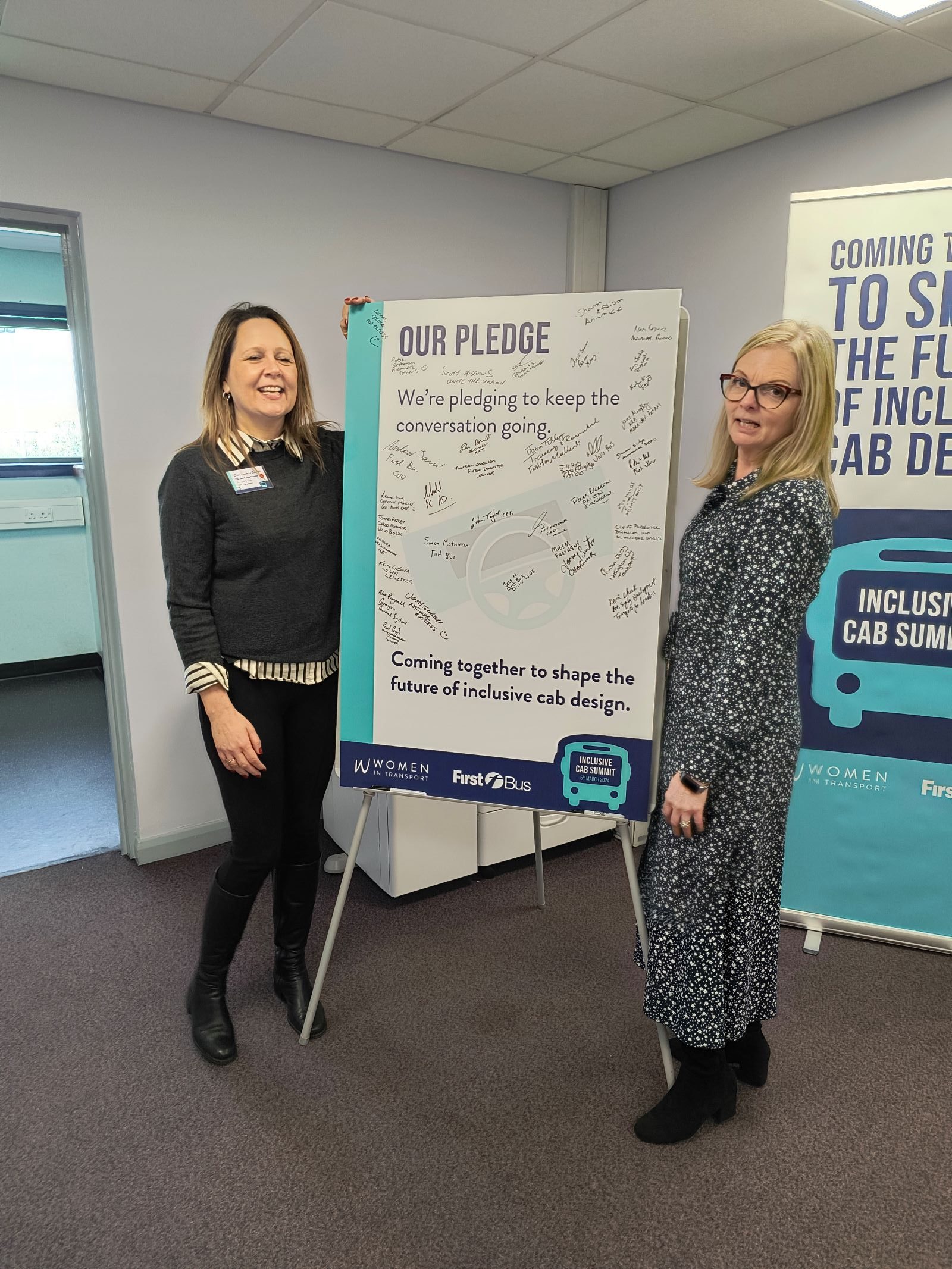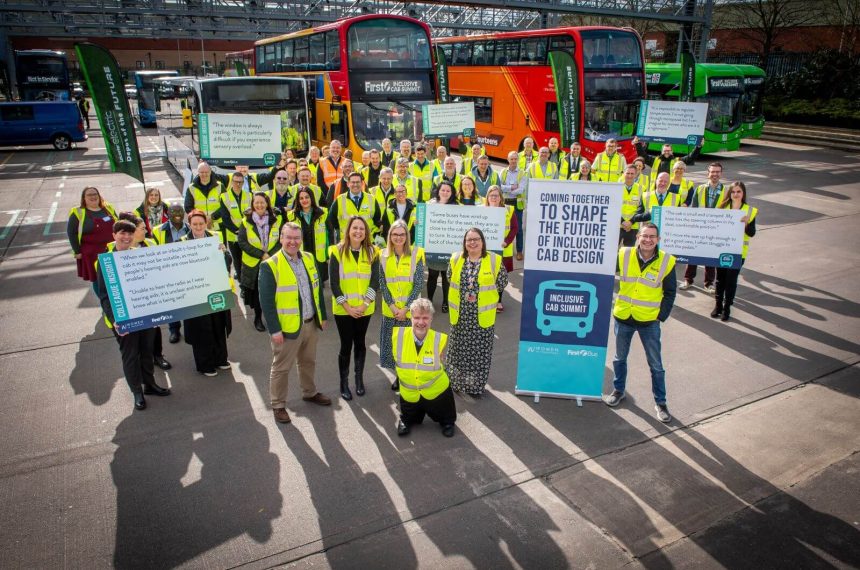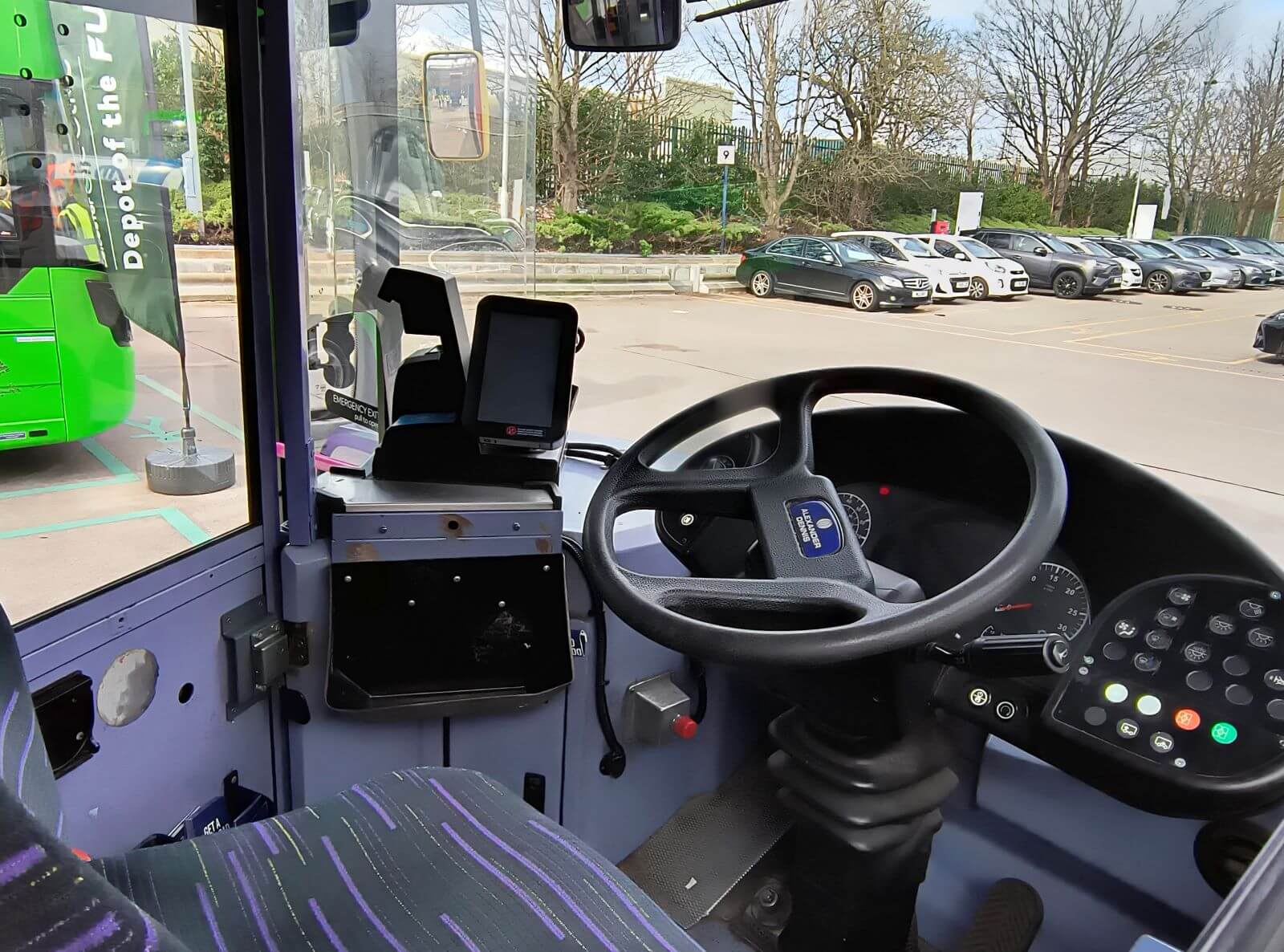Driver recruitment issues could be eased by improving the design of vehicle cabs, the industry heard at a well-attended inaugural Inclusive Cab Summit organised by Women in Transport and First Bus in Leicester on 5 March.
Thirty organisations, including manufacturers or dealerships Alexander Dennis, Pelican Bus and Coach, Volvo Buses and Wrightbus, attended the event at First’s depot. The summit was designed to set in motion a “gold charter” for inclusive cab design for coaches and buses.
It took place in the week of International Women’s Day, when the paucity of women drivers in coach and bus was highlighted once again, with Office for National Statistics data from 2021 setting it at 11%.
Meanwhile, more than one in five of the UK population has some form of disability — as pointed out by keynote speaker, Mike Adams, Chief Executive Officer of Purple Tuesday, an initiative aimed at improving the customer experience for disabled people and their families.
Women in Transport’s Diversity and Inclusion Bus Group says accelerating inclusive cab design is a key objective for 2024. Its survey conducted in January highlighted temperature control; noise distraction in the form of sensory overload from maintenance issues and technology; inadequate seat adjustments; lack of space for either body or essential personal belongings; and vision impairment in the form of windscreen glare, lights in cab or reflections.
Women in Transport spokesperson Caroline Ward was delighted with the turn-out. The 70 attendees included representatives from Stagecoach, National Express, Go North East, Blackpool Transport, Oxford Bus Company, Uno, Transport UK, Arriva, and Nottingham City Transport.
Meeting of minds
Ms Ward says: “It’s important to acknowledge that there has been research and there have been people working in this field, such as Transport Research Laboratory, but the difference today is having all the people who are interested and can make things happen all in the room together — builders, suppliers, drivers, operators.
“We know there’s an amount of commercial challenge for business and the fact that all those different areas are represented, and all engaged – that’s the power of all those voices in the room together.”
Phil Owen, Wrightbus Head of Sales (Key Accounts), led one of the discussion groups in which he said he felt cab design probably should be regulated for consistency purposes, given that drivers may switch between models and makes of vehicles.
Among the suppliers in attendance was Chapman Seating, whose Managing Director, Jerry Smith, was on hand to demonstrate a seat in the pipeline which could potentially improve inclusivity, and to hear feedback.
Retaining drivers

Andrew Jarvis, Chief Operating Officer at First Bus, says operators have had to make changes to try to retain drivers over the past few years but admits more could be done.
“It’s vital for us to ensure that we insist on the cabs that are fit for purpose,” he says. “There are so many things that we can do to improve our drivers’ lives that means that they don’t think about getting another job. The costs of not doing something can be higher than the costs of doing something.
“If you’re in the world where you’re only trying to recruit men, you’re already at 50% of the population before you’ve even started. There is more we now need to do and have been doing to appeal to a broader section of the community.”
He adds there has been a tendency for operators’ cab committees to be made up of “middle-aged white blokes” and that much can be done cheaply to improve design, such as ensuring the ventilation or space is right.
Women in Transport Co-Founder Chloe Leach-O’Connell adds: “There is a whole piece around getting more women into bus, and a lot of goes back to the culture within those businesses. We have to look at every element when people are joining the industry and see how we can improve and make that better. I think the inclusive cab work fits in as part of that wider piece.”
Collaboration needed
Organisers point out the summit was a first step and that a whole-industry approach will be needed to make a difference. Ms Ward says: “It’s not going to be one operator or one manufacturer. It must be collaborative and because people want to do it. We would love people to step up and do it because they want to — not because legislation or franchising are pushing them towards it.”
The event closed with a pledge to “keep the conversation going” which was signed by those in attendance. Plans are under way for the next summit at Chapman Seating’s West Bromwich site in October.




























